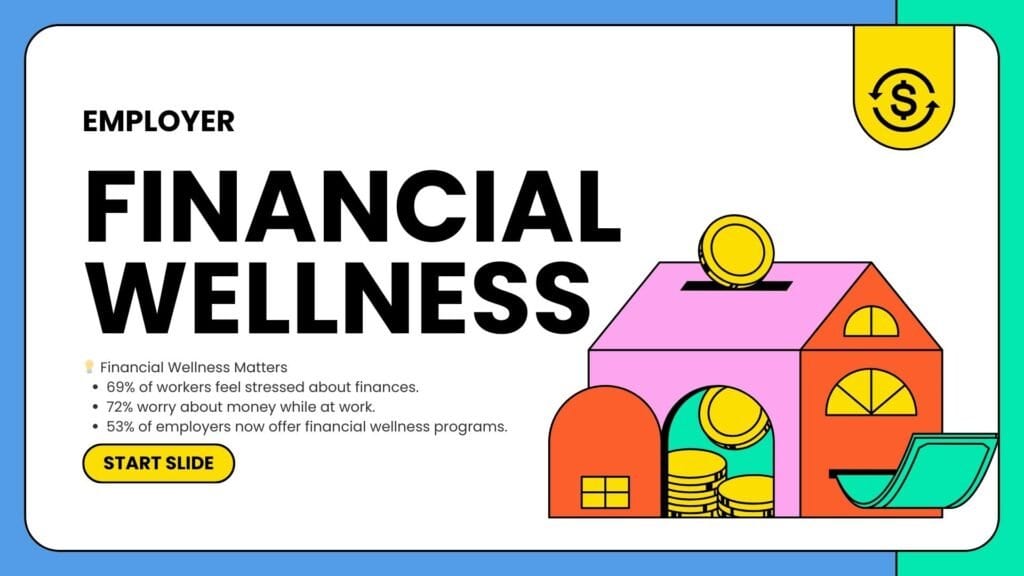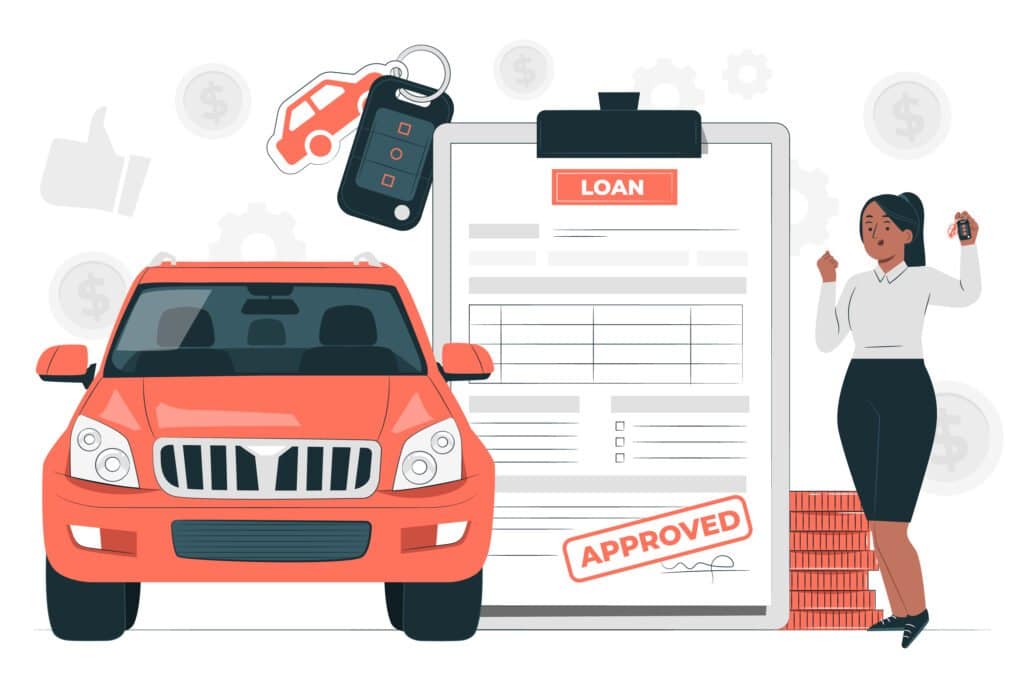Qualify for an FHA Loan in Georgia: 2024 Requirements Guide
Thinking of buying a home in Georgia? Our 2024 FHA Loan Requirements Guide covers everything you need to know, from credit score minimums to down payment options, to help you qualify and secure your dream home.

Newsletter Sign-Up
Stay informed with your inbox’s latest tips, guides, and financial insights. Join our community today and take the first step towards smarter financial decisions!
Buying a home is a significant milestone, and if you’re considering an FHA loan in Georgia, you’re on a promising path. FHA loans are prevalent among first-time homebuyers because they offer more flexible requirements than traditional mortgages. In this guide, we’ll walk you through everything you need to know to qualify for an FHA loan in Georgia, from understanding the basic requirements to exploring down payment assistance programs available in 2024.
What Exactly is an FHA Loan?
An FHA loan is a mortgage insured by the Federal Housing Administration (FHA). This government-backed insurance makes it easier for lenders to offer loans to people who might not qualify for traditional mortgages, such as those with lower credit scores or smaller down payments. The primary goal of FHA loans is to make homeownership more accessible to a broader range of people, particularly those who might face challenges with conventional loans.
FHA Loan Requirements in Georgia: What Do You Need?
So, what do you need to qualify for an FHA loan in Georgia? Let’s break it down.
Credit Score Requirements
Your credit score plays a significant role in determining whether you qualify for an FHA loan.
Minimum Credit Score:
Generally, you’ll need a credit score of at least 580 to qualify for an FHA loan with a 3.5% down payment. You might still qualify if your score is between 500 and 579, but you’ll need to make a larger down payment—usually around 10%.
Practical Tip:
- Improve Your Credit: If your credit score is lower than 580, consider improving it before applying. Simple steps like paying off outstanding debts, making timely payments, and correcting errors on your credit report can make a big difference.
Debt-to-Income Ratio (DTI)
Your debt-to-income ratio (DTI) is another critical factor in qualifying for an FHA loan. This ratio compares your monthly debt payments to your monthly gross income and is used by lenders to evaluate your ability to manage mortgage payments alongside your other financial obligations.
What’s Acceptable for FHA Loans?
Standard DTI Requirements: The FHA typically requires that your DTI be 43% or lower. This means that your total monthly debt payments—including your mortgage, credit card payments, auto loans, and other debts—should not exceed 43% of your gross monthly income.
Exceptions for Higher DTI Ratios: In certain situations, lenders may accept a DTI as high as 50%. This is often contingent on other strong financial indicators, such as:
- Higher Credit Scores: A higher credit score can compensate for a higher DTI, as it suggests a history of responsible credit management.
- Larger Down Payments: Contributing a larger down payment reduces the lender’s risk, which might allow for greater flexibility in DTI limits.
- Stable Employment and Income: A consistent and reliable income history may reassure lenders that you can manage a higher DTI.
Strategies to Lower Your DTI
If your DTI is above 43%, consider taking steps to lower it before applying for an FHA loan:
- Pay Down Debt: Focus on reducing outstanding balances on credit cards, auto loans, and other debts.
- Increase Income: Explore opportunities to increase your income through a side job or negotiating a raise at work.
- Delay New Debt: Avoid taking on new debts until after you’ve secured your FHA loan, as new financial obligations can increase your DTI.
By managing your DTI effectively, you can enhance your eligibility for an FHA loan and potentially secure more favorable loan terms.
Practical Tip:
- Lower Your DTI: If your DTI is above 43%, try paying down some of your existing debts or increasing your income before applying for a loan. This will help you qualify and get you better loan terms.
Learn More: Personal Loans for Debt Consolidation
Down Payment Requirements
One of the most significant benefits of an FHA loan is the lower down payment requirement. Use our Mortgage Calculator to see how different down payment amounts can affect your monthly payments
- Minimum Down Payment: If your credit score is 580 or higher, you can qualify for an FHA loan with as little as 3.5% down. You must put down at least 10% if your score is lower.
Practical Tip:
- Down Payment Assistance Programs: Georgia offers several programs to help with down payments, such as the Georgia Dream Homeownership Program. These programs can significantly reduce the money you need to save upfront.
Learn More: Compare Today’s 30-Year Fixed Mortgage Rates
2024 FHA Loan Limits in Georgia
FHA loan limits vary depending on where you’re buying. In Georgia, these limits are based on the cost of housing in different counties. To determine how these limits might impact your potential mortgage, use our Mortgage Calculator to estimate your monthly payments.
Learn More: Understanding Mortgage Rates: What You Need to Know
Standard Loan Limits
For most counties in Georgia, the FHA loan limit for a single-family home is $498,257. This amount is set annually by the Federal Housing Finance Agency (FHFA) and reflects changes in the housing market.
High-Cost Areas
The FHA loan limits are higher in some parts of Georgia, where housing is more expensive. Here are the top five counties with the highest FHA loan limits in 2024:
- Barrow County: $649,750
- Bartow County: $649,750
- Butts County: $649,750
- Carroll County: $649,750
- Cherokee County: $649,750
Practical Tip:
- Know Your Limit: Check your county’s FHA loan limit before you start house hunting. This will help you set a realistic budget.
How to Apply for an FHA Loan in Georgia
Applying for an FHA loan doesn’t have to be complicated. Here’s a simple step-by-step guide to get you started.
Step 1: Gather Your Documents
Before you apply, you’ll need to collect some essential documents. These typically include:
- Identification: Government-issued ID, proof of legal residency, and your Social Security Number.
- Income Verification: Signed tax returns, W-2s or 1099s from the last two years, and recent pay stubs.
- Credit Report: Ensure your credit report is accurate and up to date.
- Debt Information: List all your current debts, including credit cards, student loans, and car payments.
Once you have these documents ready, use our Mortgage Calculator to estimate your monthly payments and better understand how your financial situation will impact your loan options.
Learn More: How to Get Personal Loans in 7 Steps
Practical Tip:
- Get Organized: Keeping all your documents in one place will make the application process smoother and quicker.
Step 2: Find the Right Lender
Not all lenders offer FHA loans, so you’ll need to find one that does. Look for a lender who has experience with FHA loans and offers competitive rates.
Practical Tip:
- Shop Around: Don’t just settle for the first lender you find. Comparing offers from multiple lenders can help you get the best deal.
Step 3: Complete Your Application
Once you’ve chosen a lender, it’s time to complete your loan application. This will include detailed information about your income, employment history, and the property you want to buy.
Practical Tip:
- Be Honest: Make sure all the information you provide is accurate. Any discrepancies can delay the process or even cause your loan to be denied.
Step 4: Underwriting and Approval
After you submit your application, the lender will go through a process called underwriting. This is where they verify all your information and assess your ability to repay the loan.
Practical Tip:
- Stay the Course: Avoid significant financial changes during underwriting, like opening new credit accounts or making large purchases. These could affect your loan approval.
Step 5: Closing the Loan
If your loan is approved, the final step is closing. This involves signing all the necessary documents, paying closing costs, and officially getting the keys to your new home.
Practical Tip:
- Review Everything: Before you sign, take the time to read through all the documents to ensure everything is in order. If you’re unsure about anything, ask your lender for clarification.
Special Considerations for FHA Loans in Georgia
It would help if you kept a few things in mind when applying for an FHA loan in Georgia.
Learn More: Personal Loans for Debt Consolidation
Down Payment Assistance Programs
Georgia offers several programs to help with your down payment, which can make buying a home more affordable.
- Georgia Dream Homeownership Program: This program provides down payment assistance to eligible borrowers through a grant or low-interest loan.
Practical Tip:
- Check Eligibility: Each program has eligibility requirements, so check if you qualify.
FHA Loans and Bad Credit
One of the great things about FHA loans is that they are accessible to borrowers with lower credit scores. Even if your credit score is below 580, you might still qualify, though you’ll need to make a larger down payment.
Practical Tip:
- Work on Your Credit: If you’re close to the 580 threshold, improving your credit score could save you money on your down payment and interest rate.
Current Interest Rates
FHA loan interest rates in Georgia can vary depending on your credit score, the lender, and current market conditions. As of 2024, rates are competitive but can change, so it’s essential to lock in a rate when you find one that works for you.
Practical Tip:
- Monitor Rates: Keep an eye on interest rates as you go through the loan process, and work with your lender to lock in a rate when the time is right.
Understanding the FHA loan process and the specific requirements in Georgia can make your journey to homeownership much smoother. With flexible credit score requirements, lower down payment options, and various down payment assistance programs, FHA loans are a solid choice for many first-time homebuyers and those with unique financial situations.
If you’re ready to explore your options, contact a knowledgeable mortgage lender who can guide you. They can help you find the best terms and ensure you’re fully prepared to meet the requirements, ultimately leading you to secure your dream home in Georgia.
Remember, the proper preparation and understanding of the process can put you on the path to success in the Georgia housing market. Happy house hunting!
The FHA loan limits in Georgia for 2024 vary depending on the county and type of property. The baseline limit for a single-family home in most counties is $498,257, but in high-cost areas, this can go up to $1,148,825. It’s crucial to check the specific limit in your area to understand how much you can borrow. [Use our Mortgage Calculator to estimate your monthly payments based on these limits.
To qualify for an FHA loan, you’ll need a minimum credit score of 580 to make a 3.5% down payment. If your score is between 500-579, you’ll need to put down 10%. Additionally, your debt-to-income ratio should be 43% or lower, although some lenders may allow up to 50% with compensating factors like a larger down payment or higher credit score. [Learn more about how these factors affect your mortgage options with our Mortgage Calculator.
When applying for an FHA loan, you’ll need to provide various documents, including your Social Security number, proof of legal residency, tax returns, pay stubs, bank statements, and a credit report. Having these documents ready can streamline the application process and help you get pre-approved faster. [Check how your financial information influences your potential loan terms using our Mortgage Calculator.
FHA loans require both an upfront mortgage insurance premium (1.75% of the loan amount) and annual MIP payments, which are divided into monthly installments. These premiums protect the lender in case of default. The exact amount depends on factors such as your loan amount, term, and loan-to-value ratio. [Estimate how MIP affects your monthly payments with our Mortgage Calculator.
Yes, FHA loans can be used to purchase multi-unit properties (up to four units), provided you occupy one of the units as your primary residence. However, these properties must meet specific FHA requirements, such as self-sufficiency and additional property standards. Use our Mortgage Calculator to explore how different property types might impact your loan and payments.
When it comes to funding your business, there are two main options to consider: debt financing and equity financing. Both can help you secure the money you need, but they work in very different ways. Understanding the differences can help you decide which option makes the most sense for your goals. Here’s a simple breakdown […]
When purchasing a vehicle, deciding how to pay for it is one of the biggest decisions buyers face. Should you finance your car through a loan or pay upfront with cash? Each approach has unique advantages and drawbacks, and the right choice often depends on your financial situation, goals, and long-term plans. In this guide, […]



